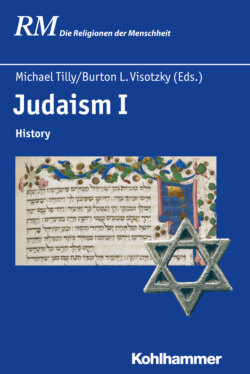Читать книгу Judaism I - Группа авторов - Страница 37
На сайте Литреса книга снята с продажи.
8.3 Judaism III: Culture and Modernity 23 Jewish Philosophy and Thought
ОглавлениеDr. Ottfried Fraisse of Martin Luther University at Halle-Wittenberg surveys Jewish thought beginning with the second century BCE through the eleventh century CE. Starting in Alexandria, Egypt, Fraisse considers the work of Philo and situates it within Hellenistic Platonism. In the footsteps of Plato’s Timaeus, Philo understands God as the first cause by which universe exists.
Fraisse leaps ahead to ninth century CE Baghdad. There, Muslim traditions provided space for Islam, for Christianity and Judaism, but also for the philosophical literature of Greek authors. Still, Jewish thought was not always receptive towards Muslim thought: occasionally it was an independent force. Nevertheless, Muʿtazilite kalām was used by Sa‘adia Gaon (died 942), his successor in the academy of Sura, Samuel Ben Hophni (died 1013), and also by Karaite opponents like Yūsuf al-Baṣīr (died 1014) in Jerusalem.
Moses ben Maimon (1138–1204), known as Maimonides, had standing as a thinker and as a scholar of halakhah. This made him the most important reformer of Jewish tradition. The threefold claim of his work is (1) to re-shape the self-image of Jews through philosophical spirituality, (2) to make non-Jewish philosophical knowledge an integral part of Jewish tradition, and (3) to insist upon the notion of causal reality as a central medium of divine revelation. According to Maimonides, philosophical rationalism should be an integral part of man’s quest for the salvation of his soul. The sharpest philosophical attack on Maimonideanism came through Ḥasdai Crescas (died 1410), in Saragossa. Crescas attacked (1) Aristotelian philosophy and (2) Maimonides’ theory of human happiness.
For Sephardic Jews coming into the Ottoman Empire in the course of the 16th century, secular sciences were so important that Aristotle continued to be studied. Increasingly, philosophy became an aid to kabbalistic theology, with a special interest in the mystical »cleaving« (devequt) of the human soul to God. From the 17th century onwards, the concept of Jewish philosophy changed in Europe. Moses Mendelssohn (1729–1786) and Salomon Maimon (ca. 1753–1800) combined an internal with an external perspective: between German and Hebrew. Jewish self-understanding and extra-Jewish perspectives have multiplied in the past 200 years.
